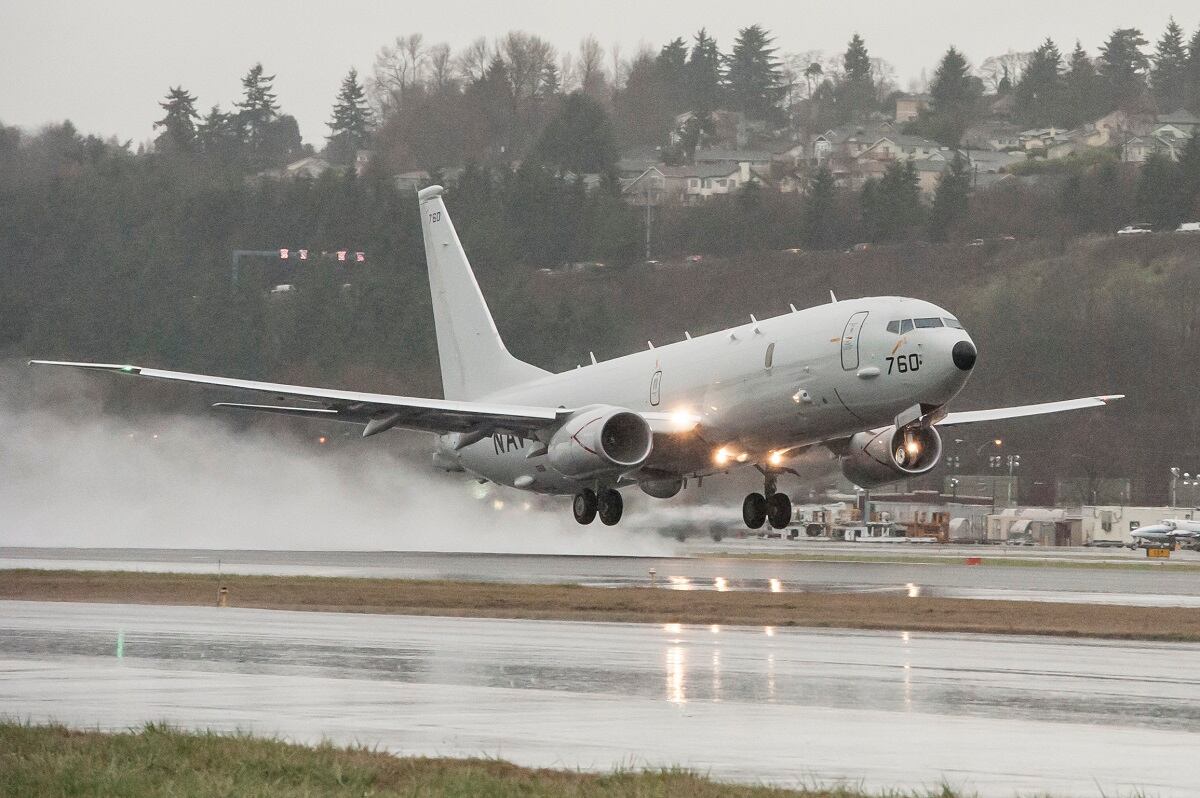BANGKOK — Over the past two years, Swedish aircraft manufacturer Saab has put its advertising muscle into promoting a maritime patrol aircraft it called Swordfish.
But in the absence of a launch customer and no immediate sales prospects, the company is ending its marketing campaign — at least for now, the head of its Asia-Pacific business said Thursday.
“From a product perspective, we are no longer marketing it. So it was a concept. It was an opportunity that we looked at on the back of GlobalEye, and we’re just concentrating on GlobalEye,” Dean Rosenfield said in a roundtable with journalists in Saab’s Bangkok office.
Defense News traveled to Thailand the week of Nov. 26 to learn more about the country’s air warfare capabilities, accepting airfare and accommodations from Saab.
Swordfish was initially conceived as a derivative of Saab’s GlobalEye airborne early warning aircraft. Both are based on Bombardier’s Global 6000 airframe and contain a suite of cutting-edge sensors, with Swordfish also adding torpedoes, sonobuoys, anti-ship missiles, an acoustics processor and a magnetic anomaly detector.
But while GlobalEye has landed a launch customer in the United Arab Emirates, Swordfish is still looking for a buyer.
Saab hoped to position Swordfish as a lower-cost alternative to Boeing’s P-8 Poseidon, which is used by the U.S. Navy to hunt submarines and conduct surveillance over open waters. The firm targeted a handful of international countries who had expressed interest in upgrading their legacy maritime surveillance inventories.
One such country was South Korea, which was looking for up to six additional aircraft to augment its fleet of Lockheed Martin P-3 Orions.
In March, one Saab official told Defense News that — should South Korea chose Swordfish as its future maritime patrol aircraft — the company was prepared to allow South Korea to have a hand in producing the aircraft, with the first few aircraft being produced in Sweden and the rest assembled in South Korea.
Saab had responded to South Korean requests for more information about Swordfish, Rosenfield said. But in June the country decided to award a sole-source contract valued at about $1.7 billion to Boeing for the P-8 Poseidon, eschewing the Swordfish and Airbus’ C295.
RELATED

In July, another sales opportunity for Swordfish was dashed, when New Zealand announced that it would buy up to four P-8s to replace its P-3s.
Rosenfield said that even if Saab wasn’t successful in the Korean competition, the company’s efforts may still prove fruitful as it goes forward marketing its GlobalEye early warning plane.
“But the good thing about what we did there is that it gave us great recognition — brand recognition — particularly as we were marketing a GlobalEye capability like what we are delivering to the UAE,” he said. “That’s where we see it going.”
Rosenfield said there may be opportunities in the future to resurrect the Swordfish sales initiative.
“If there is a customer who has a need for a maritime patrol aircraft, like Singapore for example, and they are prepared to invest in the technology to take something that hasn’t been delivered before to a first customer, then we’re happy to entertain that discussion,” he said.
But currently, “the product, per se, doesn’t exist in the Saab portfolio,” he added.
Valerie Insinna is Defense News' air warfare reporter. She previously worked the Navy/congressional beats for Defense Daily, which followed almost three years as a staff writer for National Defense Magazine. Prior to that, she worked as an editorial assistant for the Tokyo Shimbun’s Washington bureau.







